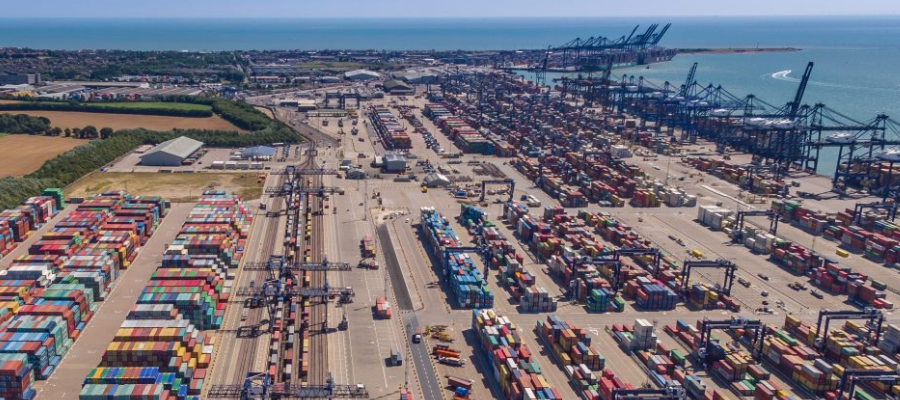After a hiatus which saw the service suspended, GBRf is re-establishing the five-day-a-week link from Monday to Friday.
GBRf is already a frequent visitor to Felixstowe, the UK's largest container port, with the Peterborough-headquartered operator providing 17 daily services from the Suffolk port.
GBRf has demonstrated that it is committed to growing its intermodal network and the Felixstowe – Daventry connection becomes their fifty-fourth service nationally.

“We’re delighted to be re-introducing this new service to Daventry,” said Julie Garn, GBRf Intermodal Director. “GB Railfreight piloted this service in October 2023. However, after collaborating with an innovative and proactive customer, we are extremely confident of success and delivering a long-term connection between Felixstowe and Daventry.”
Despite well-documented rail capacity constraints on the approach to Felixstowe, an existing path has been reactivated to accommodate the service. With road traffic heavy, particularly on the east-west A14 highway, the prospect of removing 100 heavy goods vehicle movements from local roads has been welcomed.
“We already offer more rail freight services to more destinations than any other UK port,” said Paul Davey, Head of Corporate Affairs at Hutchison Ports. “The new GB Railfreight service to Daventry further increases the options for shippers using the Port of Felixstowe to take carbon out of their supply chains.”
The re-established service is good news for the ambitious rail freight operator and also for DIRFT.
“We welcome a new daily Intermodal service into our terminal from Felixstowe,” said Andrew Malcolm, CEO of WH Malcolm, who manage the terminal. “We look forward to working with and supporting GB Railfreight on this new initiative.”
Ellis Shelton, Logistics UK’s Senior Policy Advisor said: “This proactive initiative is exactly what the rail freight sector needs to support the UK's goals for a greener, more efficient supply chain, benefiting both local communities and the wider logistics sector. The move provides shippers with more efficient, reliable and environmentally friendly transport options.
“These kinds of rail solutions demonstrate the powerful role that intermodal transport can play in supporting sustainable growth in our logistics sector. As well, the success of this service, made possible through collaboration and proactive partnerships, is a prime example of how public and private stakeholders can work together to deliver tangible benefits for the industry and local communities alike.”